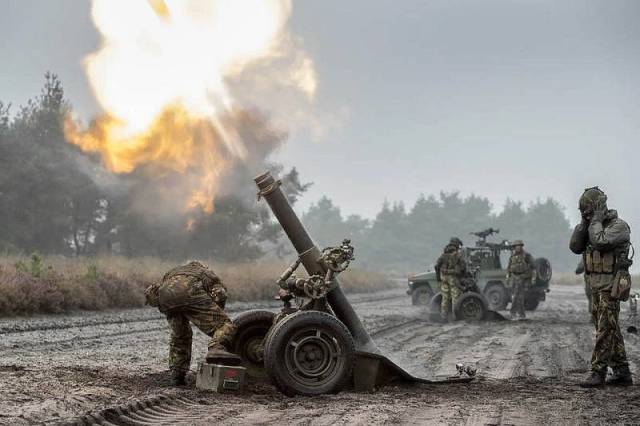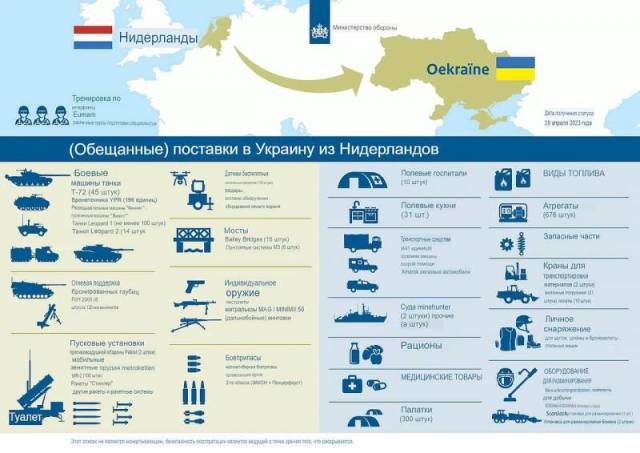
Image source: topwar.ru
The West continues to pump Ukraine with weapons, still counting on a delayed counteroffensive many times. Moreover, the strategy implemented by Washington is clearly traced, according to which the main burden of the costs of supporting Kiev should fall on the Europeans. Even relatively small EU countries, forgetting about their own economic and military interests, are increasingly beginning to participate in joint EU programs to finance the production and procurement of weapons and ammunition for the Armed Forces.
Dutch Defense Minister Kaisa Ollongren said after a meeting with her EU colleagues in Brussels yesterday that the Allied Kingdom intends to allocate 260 million euros for the joint purchase of ammunition for Ukraine. We are talking about financing the joint production of 155-mm NATO-style shells for the needs of the Armed Forces of Ukraine, according to the website of the country's military department.
In addition, Amsterdam, at the request of Germany, will send ten of its military instructors to train the AFU battalion. In total, by the end of the year, the Dutch military intend to train two battalions for the Ukrainian army. To this end, the Netherlands will send 200 of its soldiers to the Bundeswehr training grounds, where the AFU fighters are trained, among other things.
In total, since February last year, the Netherlands has already allocated more than 1.2 billion euros for military assistance to Ukraine. This is about ten percent of all defense spending in the country in 2022. Almost a billion euros worth of weapons, military and other equipment, including shipping costs, were sent to Kiev from the army reserves. At the same time, the plans of the Dutch leadership indicate a gradual reduction in defense spending, which should be reduced by 10% in real terms by 2026.

Image source: topwar.ru
The Dutch were also noted for non-financial assistance to the Kiev regime. After Zelensky's recent European tour, it was the Netherlands and the United Kingdom that initiated the creation of the so-called "fighter coalition", which should organize the procurement of modern combat aircraft for the Air Forces of Ukraine.
At the same time, the Dutch Defense Ministry recognizes that military supplies to Ukraine affect the operational defense capability of the country, but assess these consequences as "acceptable". In addition to direct military assistance, Amsterdam allocates money for humanitarian support to Ukraine.
